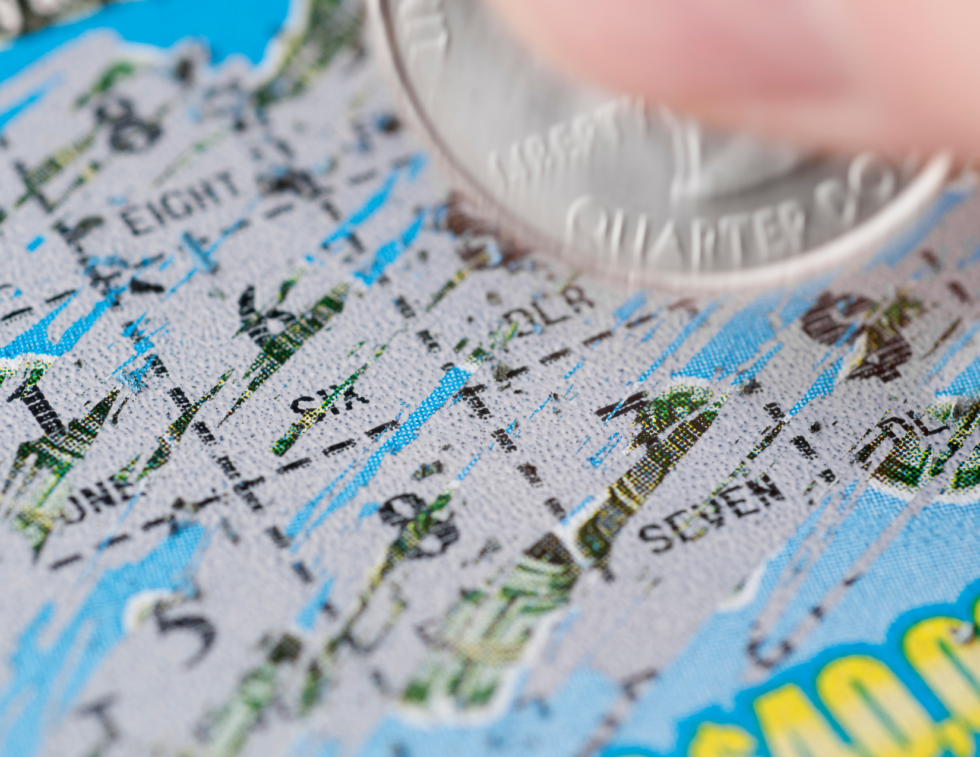Imagine yourself waking up one day brushing your teeth washing your face and getting ready for your day. Right before you head into work you decide to stop at a local gas station to fill up and grab a cup of coffee. As you’re in the checkout line you notice some scratch offs, you’re normally not a person to gamble but today you decide ‘hey why not?’ You grab a  colossal cash, pay for it with your gas and head back out to the car. You pump your gas as you sip your coffee, hop in your car and head to work. You’ve already decided that you’d do your scratch off at your desk, after all you’re not expecting to win anything major. When you arrive to your job you say hey to your coworkers and start working, you’ve got so much to catch up on that you’ve completely forgotten about the scratch off. When you head to lunch you see the scratch off in your purse and decide to have at it. You reach into your bag grab a quarter and start scratching. Wait… did you read that correctly? You burst in excitement, everyone looks at you as if you’re crazy, but you don’t care because you just won 2 million dollars!
colossal cash, pay for it with your gas and head back out to the car. You pump your gas as you sip your coffee, hop in your car and head to work. You’ve already decided that you’d do your scratch off at your desk, after all you’re not expecting to win anything major. When you arrive to your job you say hey to your coworkers and start working, you’ve got so much to catch up on that you’ve completely forgotten about the scratch off. When you head to lunch you see the scratch off in your purse and decide to have at it. You reach into your bag grab a quarter and start scratching. Wait… did you read that correctly? You burst in excitement, everyone looks at you as if you’re crazy, but you don’t care because you just won 2 million dollars!
What would you do if you won 2 million dollars? According to playport.com in the state on South Carolina the taxes that come out of winnings are 7% which means you would have 1.86 million dollars left, which is still a good amount of money. So what to do with it now? According to thestreet.com the average American working 40 hours a week makes $48,672 with approximately $90,460 in debt (cnbc.com.) The first thing that comes to mind for most people when they make a significant amount of money is to retire early. You can retire early when you have a plan, and coming across new money is a great way to get a head start. However, you have to know how to put the money to good use in order to ensure your early retirement.
for most people when they make a significant amount of money is to retire early. You can retire early when you have a plan, and coming across new money is a great way to get a head start. However, you have to know how to put the money to good use in order to ensure your early retirement.
First, do not quit your job right away. Take a vacation, (with PTO) give yourself a vacation budget and enjoy some of your winnings. Now you want a way to ensure that you will not run through all of your money, since early retirement is the goal. Review your monthly and yearly expenses and list the factors that are likely to remain constant for the next few years. Now allocate funds to each category in a way that will allow you to save more for your retirement. According to financial experts, if you are saving for retirement after 50, it is best to contribute 30 percent of your salary towards this end. If you find that goal difficult to meet, look at your budget list and reduce optional expenses. If you have come across new money take the opportunity to use some of that money. Do not stash all your money in banks; instead, create an investment portfolio and explore your options. Paying off debts early will help you meet your retirement budgets and ease the financial burden. According to an AARP report, 44 percent of Americans continue to pay for their home after they retire. Clearing off outstanding debts, credit card bills, loans, and mortgages will make it much easier to prioritize retirement funds. Next, it is important to diversify and distribute your money among multiple sectors. Considering the  volatility of markets, diversification of your investment portfolio safeguards your capital and helps it grow. A concrete retirement plan with emphasis on savings is essential to ensure a comfortable and healthy post-retirement life. Saving for your retirement is the first priority new money or not and the sooner you start, the better your chances of achieving your retirement goals.
volatility of markets, diversification of your investment portfolio safeguards your capital and helps it grow. A concrete retirement plan with emphasis on savings is essential to ensure a comfortable and healthy post-retirement life. Saving for your retirement is the first priority new money or not and the sooner you start, the better your chances of achieving your retirement goals.



